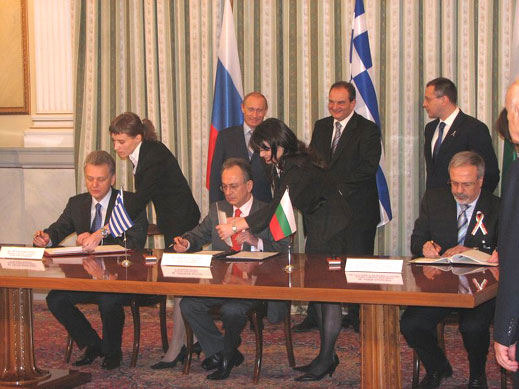.
.
Moscow awaits Sofia moves on pipelines
Published: May 13, 2010 at 10:23 AM
ISTANBUL, Turkey, May 13 (UPI) -- Two oil pipelines meant to bypass congested Turkish waters can merge once the Bulgarian government decides to act, the Russian energy minister said.
Bulgaria in 2007 signed an agreement with Russia and Greece to build the 174-mile Burgas-Alexandroupolis oil pipeline to bypass crowded waterways near Turkey by crossing an overland route to the Aegean Sea
Russia's state-owned pipeline operator Transneft said late payments from Sofia are having a negative impact on project development.
Meanwhile, Moscow is lobbying for progress on the Samsun-Ceyhan oil pipeline through Turkey, saying it would reduce the environmental impact of tanker traffic in the Black Sea.
Russian Energy Minister Sergei Shmatko said both projects could merge if Bulgaria acted appropriately, Russian news agency ITAR-Tass reports.
"As soon as the Bulgarian government shows readiness to implement the project and takes practical steps towards further implementation of the project, we on our part will suggest discussing a consolidation of these projects," he said.
Burgas-Alexandroupolis oil pipeline is to be completed near the end of 2011.
Samsun-Ceyhan is scheduled for completion in 2012.
Shmatko was speaking during a state visit to Turkey.



No comments:
Post a Comment